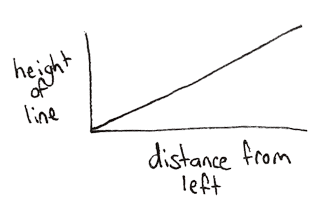
What is “Growth Hacking” really?
There is a lot of buzz around the new term "Growth Hacking", and many companies I know or have met recently are looking for a "Growth Hacker". I worry sometimes that this feels like a fad and people think "ooh, I will grow much faster if I can just find a magical unicorn growth hacker" or start to believe that you really can hack sustainable growth in any way.
While I think it is fantastic that many more companies are taking growth seriously, I think it is important that people keep their eyes on the big prize of building deep, sustainable companies and networks. You can't hack the long term patterns of growth -- when someone is so actively using a product that they keep sharing it with their friends without realizing it. Or so in love with a product they tell everyone about it. Or they demand their friends join so that their friendship gets even better. Understanding how this works and recognizing it when it starts to emerge is critical.
That said, you do need to find the right "hacks" that help you get to those points of sustainable growth. LinkedIn started with Reid Hoffman inviting his entire professional network to join him, Facebook started expanding college-by-college waiting until they had a 20%+ of the student body to open at each place, and AirBnb got early supply and demand by cross-posting on Craigslist. While these were all great starts, it wasn’t until each company had more sustainable viral loops and SEO conversion working that they really started taking off.
So when talking about growth now, I don't think milestones are important as figuring out whether you have a path to sustainability. In other words, it doesn't matter if you have 10M users or 10k users, but more that whatever you do to get your first few users, it's how that turns into durably getting more users that matters. And that eventually it creates some really deep long lasting network effects.
This was prompted by a funround-table discussion on growth hacking on DailyTekk.com I participated in last week. Here are the thoughts I shared:
1. What is growth hacking and why is it worth a company’s attention?
Growth hacking isn't the best term, but it describes a new process for acquiring and engaging users combining traditional marketing and analytical skills with product development skills. In the past, marketing and product development departments were often at odds where marketing groups would be spending significant amounts of money to acquire users but couldn't get any development resources to build something as simple as new custom landing pages. And on the other side, product development teams would often build what they think users want and will attract users without deeply measuring and understanding the impact of their changes. This concept of "growth hacking" is a recognition that when you focus on understanding your users and how they discover and adopt your products, you can build features that help you acquire and retain more users, rather than just spending marketing dollars.
2. Describe one or two specific examples of significant results achieved through growth hacking (preferably that you were personally involved with).
When I joined Twitter, we had an interesting puzzle. Many many users were hearing about Twitter each day from press, blogs, their friends and were signing up. But none of them stuck around. Typical marketing efforts in the past would have been to use email newsletters to bring users back, or spend money on display retargeting. But instead we invested in the product. We dug in and tried to learn what the "aha" moment was for a new user and then rebuilt our entire new user experience to engineer that more quickly. It turned out that if you manually selected and followed at least 5-10 Twitter accounts in your first day on Twitter, you were much more likely to become a long term user, since you had chosen things that interested you. And if we helped someone you know follow you back, then even better. As we kept tweaking the features to focus on helping users achieve these things, our retention dramatically rose.
3. What are the essential mechanics/strategies of effective growth hacking--in other words, how do you actually hack growth?
The short answer is you can't really "hack" growth. Any attempts at artificially creating growth patterns such as spamming friends on Facebook or Twitter, or hacking App Store download charts may result in spiky numbers, but rarely adds retained users. It's kind of like eating empty calories. Instead, you have to search through your data from your more active and passionate users and discover the deep core patterns that encouraged those users to become active. And then you have to build sustainable features that help attract users on a continuous basis such as good viral flows or great SEO landing pages, and then an experience that helps users quickly understand and become active within your product.
4. How will growth hacking impact the business and startup culture moving forward and is it a trend or here to stay?
I think the best part of the current hype around "growth hacking" is that it helps remind everyone how important it is to grow your product. I still hear too many times "well, if we just build an amazing product, then we'll attract plenty of users". That simply isn't the case. You need to learn from your data and understand what innately in your product helps your active users attract new users, and then create solutions that help engineer that to happen more quickly and more often. Knowing how to build and market great products have always been core attributes of successful companies. I think we're going to see these blend more and more in the future.
You can read the full series on DailyTekk.com: Part 1 Part 2 Part 3 Part 4
